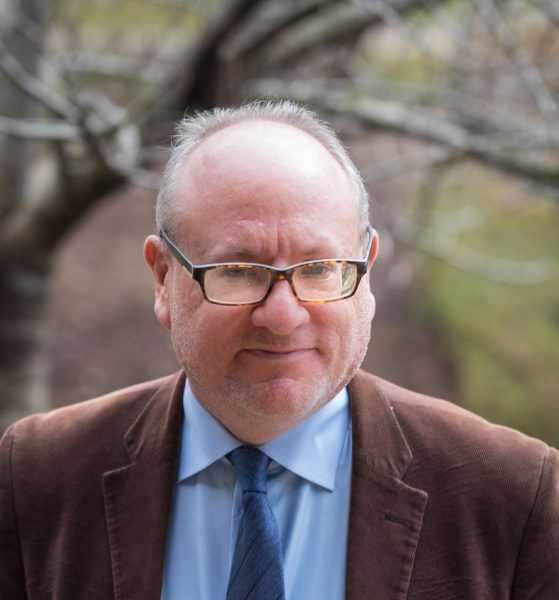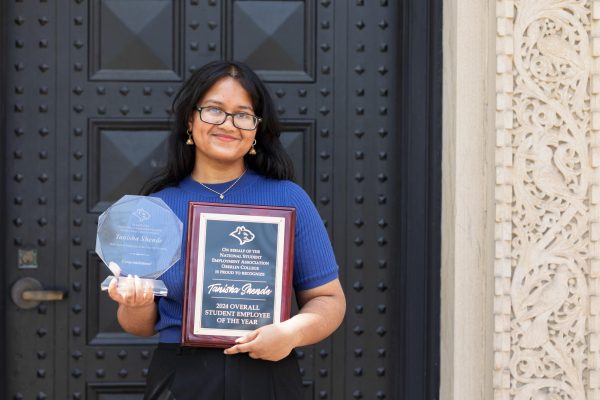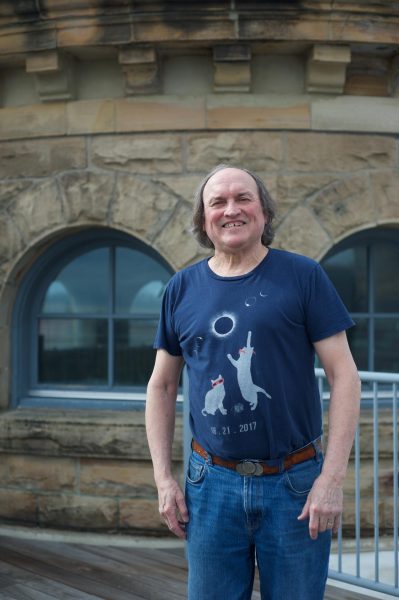Off the Cuff with Amanda Bloom, DrugsCo Instructor
In preparation for Solstice, the joint Solarity and Drag Ball event happening on Saturday, Oberlin Students for Sensible Drug Policy hosted a trip-sitting workshop to train students on how to support individuals using recreational drugs. College third-year Amanda Bloom, co-chair of Oberlin SSDP, is co-teaching EXCO 420: Drugs, Harm Reduction, and Counterculture, also known as DrugsCo, this semester. We sat down with Bloom to discuss some of the common misconceptions about drug use, the importance of education on how to safely enjoy recreational drugs, and some interesting, lesser-known facts about drugs.
How did you get into DrugsCo, and why are you passionate about it?
I got into DrugsCo when I took it when Rachel [Clark, OC ’21] was the instructor last year. My roommate was going to teach it, but they had a lot on their plate at the time, and they approached me and asked if I’d be willing to do it instead. I was really hesitant at first, because I don’t think I have the best public speaking skills, and I get nervous a lot. But it was also a topic that I am very passionate about, so I thought about it and realized that it was something that I would really like to do, and I thought that I had a lot of knowledge to bring to the table. I think there’s a lot of misconceptions about drugs and people that use them. There’s a lot of fear-mongering that goes on in a lot of more traditional drug education, as well as a lot of downplaying the dangers of substances as well. DrugsCo attempts to give people objective and comprehensive information about drugs, the history of their use, and ways to make that use safer.
Why did Oberlin SSDP host a trip-sitting workshop now?
It was partly because Solstice is coming up, but it was also our first event as an Oberlin chapter and we wanted to kick it off with something engaging. Both Drag Ball and Solarity have a history of recreational drug use, including psychedelic use. We thought it was important for people to go into it being aware of ways to do those activities more safely.
What is trip-sitting?
Trip-sitting is the process of sitting with someone and acting as a supportive presence while they’re under the influence of a substance. We mostly talked about psychedelic drugs in the presentation, but it can really apply to any sort of mind-altering drugs.
Solstice is the largest event since the College loosened COVID-19 restrictions since last year. What are some of the things that you’re more concerned about seeing at Solstice, and what do you hope to see in terms of safe and enjoyable drug use?
It’s important to acknowledge that after a long period of not using drugs, or not being part of a party scene, people forget their own tolerance and their own limits of how much they can do. After not using for a while, your tolerance goes down and something that you might have been able to handle before becomes overwhelming, or might even cause an overdose. Looking out for people who might be experiencing an overdose of any kind, even from alcohol, or just might not be fully coherent and not able to walk properly — these are all things that you can look out for and act as a supportive person for someone who might be having a hard time, especially if they don’t have friends nearby. SSDP will be tabling at Solstice, and we’re a resource that you can come to if you have any questions. If it’s a medical emergency, that’s a reason to call 911.
You talked a little bit about misconceptions that people have — what’s one that you feel like is the most common and maybe the most easily debunked?
I feel like there’s so many and this is by no means the most important, but I’ve heard like a lot of people — even at Oberlin — say like, “LSD gets stored in your spine forever and if you crack your back, you’ll get a flashback,” which is really funny. It’s not the most dangerous misconception, but it’s just blatantly incorrect. I guess when it comes to more dangerous things, for a lot of people, their go-to method of snorting things is with dollar bills. Using dollar bills in that manner can actually transmit Hepatitis C, which a lot of people aren’t aware of. That’s not something that’s normally on people’s minds when they’re using dollar bills in that way. Spreading information like that just doesn’t get a lot of attention — especially when the focus is solely trying to prevent people from doing drugs in the first place, rather than focusing on ways that people doing it already can make their use healthier.
Are there any lesser-known drug facts that you could share?
One thing that we talked about in the trip-sitting lecture was how adulterated substances tend to be. Adulterated is when there are things that are not the drug that are put into it. About half of ecstasy — which is also Molly or MDMA — on the market right now does not contain any MDMA whatsoever. It’s usually meth, or caffeine, or sugar, or a bunch of different drugs that aren’t even identifiable. People don’t realize how adulterated the market tends to be, which is another consequence of the war on drugs and making these things illegal. There’s a lot of clinical trials going on right now about using drugs like MDMA and ketamine and psilocybin as treatment for mental illnesses. It’s kind of the first breakthrough in treating depression and PTSD that we’ve had in a while. It portrays a different side of these drugs that have usually been focused on as street drugs, party drugs, drugs of abuse, and then realizing that they actually might have therapeutic potential.
You mentioned caffeine earlier. Would you classify caffeine as a drug, and if so, why?
Caffeine is absolutely a drug. I would classify that as a misconception about drugs. There are people that say that weed isn’t a drug because it’s a plant, and caffeine is not really thought of as a drug, because it’s legal, and because it doesn’t have very drastic health consequences. But it’s a drug because it causes physiological and psychological changes to your body and your brain, and it can cause dependence and tolerance as well. So that’s important to consider when you’re consuming caffeine. It can definitely be an energy boost, but there are definitely some negative side effects to it.
Is there anything else you’d like to add?
When it comes to Solstice, SSDP will have a table there. We’ll also have a cool-down station and drinks, because it’s very important to stay cool and stay hydrated, whether you’re consuming substances or not. We’ll also have information on different drugs if you ever wanted to learn more. Just come say hi — even if you don’t have anything else that you wanted to talk to us about — we’d be happy to say hi to people at Solstice.









